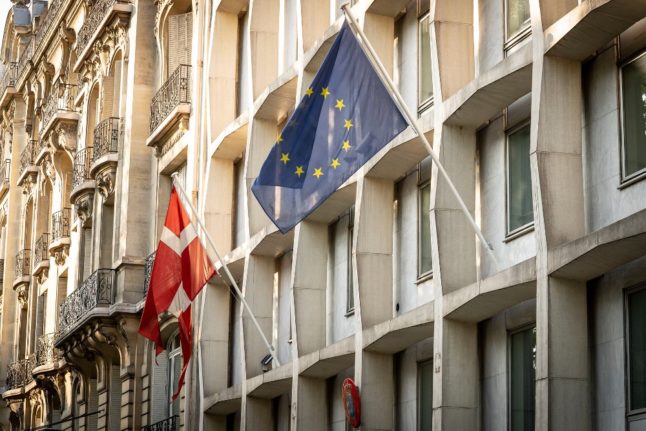The three opt-outs – retsforbehold in Danish – were negotiated by Copenhagen with the EU, and their presence is largely due a result of a series of referenda held by Denmark on EU matters over the decades.
Denmark has held a total of nine different referenda since it voted in favour of EU (then European Community) membership in 1972, with three being particularly important in relation to the opt-outs.
When the Danish public voted to reject the Maastricht Treaty in a June 1992 referendum, Copenhagen obtained opt-outs in four sovereign areas: the single currency; justice and police matters; EU citizenship; and defence.
In December 2015, Danes voted no in a referendum on the police and justice opt-out which would have strengthened the country’s cooperation with the European Union on those matters. Concerns about losing sovereignty over immigration were a key factor in the ‘no’ vote.
The defence opt-out was repealed in June 2022 following a referendum held in the wake of the Russian invasion of Ukraine.
READ ALSO: What will decision to end EU defence opt-out change for Denmark?
The three remaining opt-outs mean, broadly, that Denmark is not obliged to follow EU laws on the areas they pertain to and is also not involved in forming the laws – Danish ministers and officials do not participate in EU ministerial meetings in these areas.
Single currency
The single currency opt-out means that Denmark is not obliged to join the euro. The country has kept the krone as its currency and is also allowed to practice independent fiscal policy under the terms of the opt-out.
Although Denmark has not introduced the euro, it does participate in some areas of the single currency. For example, an agreement between the Danish central bank, Nationalbanken and the European Central Bank (ECB) means that the exchange rate of the krone follows that of the euro. When the ECB increases or cuts interest rates, Nationalbanken will do the same.
The exchange rate between the krone and the euro is also maintained at a very constant rate, echoing the relation between the krone and the Deutschmark in pre-euro times.
Meanwhile, Denmark cannot be sanctioned by the EU if its budget gives too high a deficit, unlike eurozone countries.
Danes voted no to ending this opt-out and taking on the single currency in a close referendum in 2000, in which 53.2 percent voted to keep the krone and 46.8 percent voted in favour of introducing the euro. Turnout was very high at 87.6 percent.
Justice and police
This opt-out, which Danes voted to retain in the 2015 referendum referred to above, means that Denmark in principle is outside of the EU cooperation on laws relating to border control, asylum, civil law, criminal law and cross-border crime. There are two important exceptions: visa rules and the Schengen area, in which Denmark participates fully.
The result of the 2015 referendum meant that Denmark chose not to replace its current blanket opt-out of EU justice rules with a model which would have allowed it to choose whether or not to participate in some areas of EU policy on a case-by-case basis – in other words, an “opt-in” model.
The justice and police opt-out means that Denmark does not participate in Europol, the EU’s international policing and data resource-sharing organisation. Denmark does have some level of cooperation with Europol however. This was agreed through negotiations which took place after the 2015 vote.
EU citizenship
The final Danish opt-out, which relates to EU citizenship, does not have any practical effect.
The opt-out was adopted by Denmark to guarantee that EU membership would not eventually take the form of a national citizenship or an equivalent of this. This guarantee is now written into the EU treaty, meaning it applies for all member countries: EU citizenship is a supplement to national citizenship and does not replace it.



 Please whitelist us to continue reading.
Please whitelist us to continue reading.
Member comments